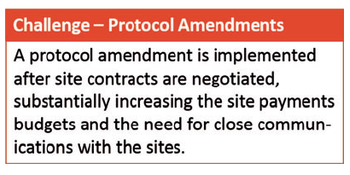
Sathyanarayanan Krishnamurthy looks at the potential impact of Pharma 4.0 on product development and regulatory operations.

Sathyanarayanan Krishnamurthy looks at the potential impact of Pharma 4.0 on product development and regulatory operations.

Biopharma companies hungry for digital talent must evaluate their real estate portfolio and workplace strategies to access new talent pools, says Joanne Henderson.

It is worth keeping patients, clinicians, pharmacists and the wider public front of mind when evaluating priorities and best next steps towards Identification of Medicinal Products(IMDP) and other emerging standards, writes Frits Stulp.

Every big shift will stir up dissenters, but these negative forces can actually offer a useful contribution if their concerns are fed into a continuous change program. This could make all the difference in regulatory information management transformation, writes Steve Gens.

Patient support program providers should incorporate new technologies for more effective processes, but this should be matched with empathy, human connectivity and personalized clinical interventions, writes Tommy Bramley.

Many real-world data sources contain unstructured text, making it difficult and time-consuming to glean actionable insights from the data. Natural language processing technology can alleviate this problem, writes Jane Z. Reed.

Aiden Flynn discusses mining real-world data pools to transform drug development.

Clive Glover and Mark Szczypka discuss the complexities of scaling up the manufacturing of gene therapies and gene-modified cell therapies to industrial levels.

The cell and gene therapy space remains fertile territory for growth, exploration, and discovery. How applying a data-driven model may be the best way to approach this complex ecosystem and assess the innovations of tomorrow.

How to navigate the production and reimbursement intricacies of bringing regenerative medicines from bench to bedside.

Exploring the EU’s struggles and new efforts in promoting cell and gene drugs.

Why Key Online Influencers are so important and how to leverage them.

By the end of 2020, it is predicted that AI will create more jobs than it is taking. Should reps be concerned, asks David Logue.

There’s no need for companies to turn to fancy technologies in order to meet Drug Supply Chain Security Act compliances by the deadline, writes Gina Parry.

More signs of alignment between startups, pharma, and payers.

Automation is an essential aspect of data management and processing today in the pharma industry. At the same time, it’s important for companies to strike a balance between humans and machines, write Emily Eller and Kevin Frymire.

Why the time is right for P&T committees to incorporate real-world data and ‘real-world science’ into their product assessments.

Global content management needs are mounting among life sciences organizations, as they expand their market coverage and grapple with multiplying regulatory workloads. Monica Vytiskova asks if can intelligent automation offer a solution.

Cell One Partners' George Goldberger discusses the issues that new and emerging cell and gene therapy companies face on the road to commercialisation.

Pharma companies are increasingly turning to tech enabled behavioral-based interventions to help improve patient outcomes through their diagnosis, treatment, and coordination of care.

Small- and medium-sized pharmas should revisit their pharmacovigilance strategies and adopt smarter end-to-end solutions to keep pace with increased volumes and rapidly changing regulatory requirements, writes Siva Thiagarajan.

Repurposing existing technology to alleviate traditional ‘pain points’ in ensuring clinical investigator payments transparency

Preserving positive ROI amid healthcare’s innovation explosion.

Given the complexities of clinical trials, however, accurate updating of actual and forecasted site payments for real-time reporting remains one of the largest challenges in medical product development, writes Shaun Williams.

The story of how AI is improving all aspects of life science is still being written. But AI’s future impact on patients’ daily health will be informed and influenced by the work being realized today, writes Opinder Bawa.